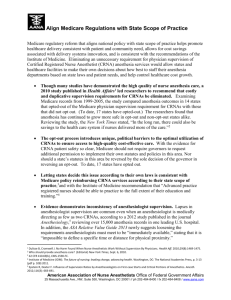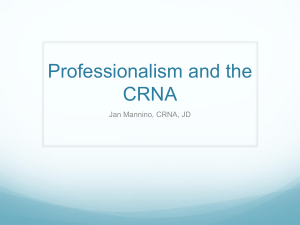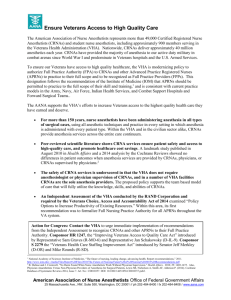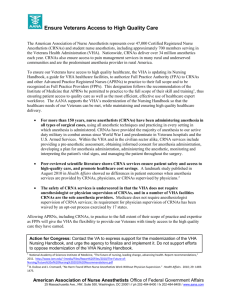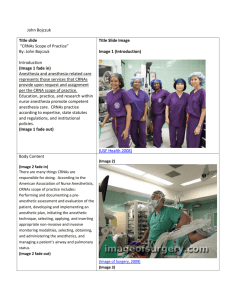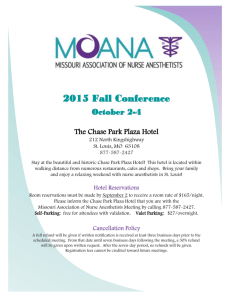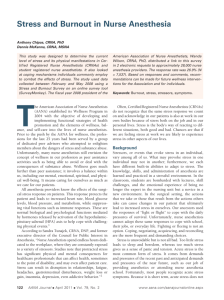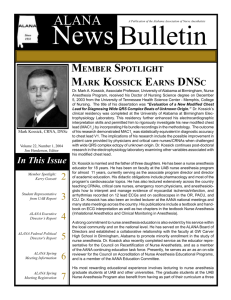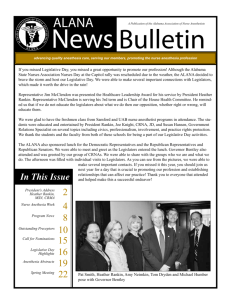Access to Pain Care - American Association of Nurse Anesthetists
advertisement
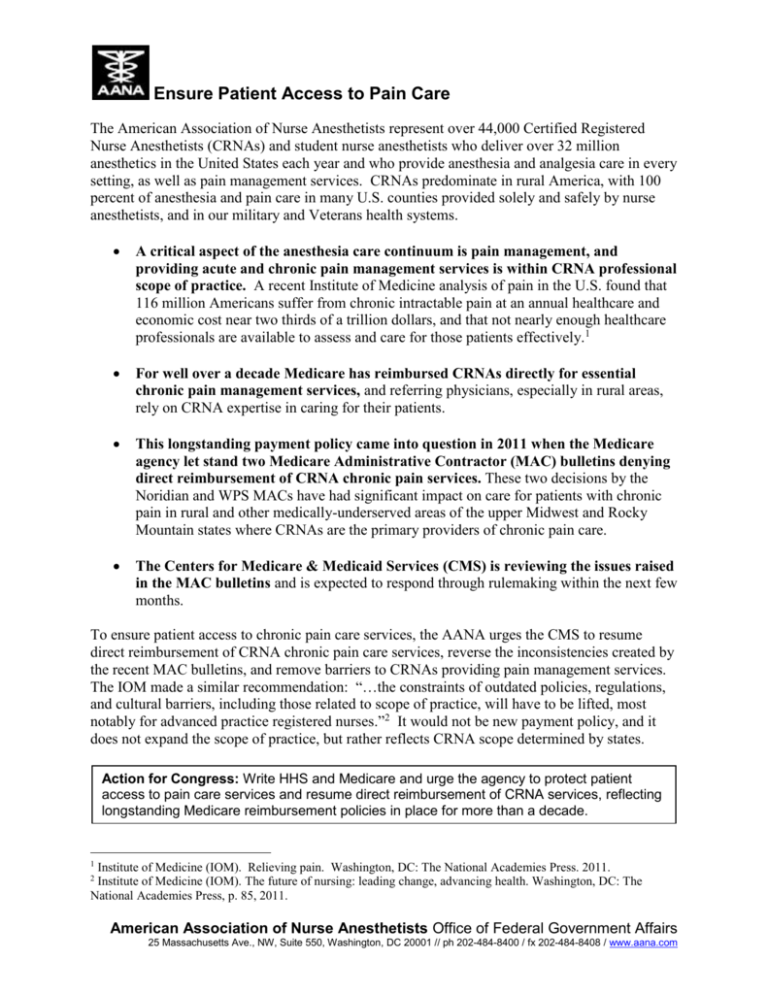
Ensure Patient Access to Pain Care The American Association of Nurse Anesthetists represent over 44,000 Certified Registered Nurse Anesthetists (CRNAs) and student nurse anesthetists who deliver over 32 million anesthetics in the United States each year and who provide anesthesia and analgesia care in every setting, as well as pain management services. CRNAs predominate in rural America, with 100 percent of anesthesia and pain care in many U.S. counties provided solely and safely by nurse anesthetists, and in our military and Veterans health systems. A critical aspect of the anesthesia care continuum is pain management, and providing acute and chronic pain management services is within CRNA professional scope of practice. A recent Institute of Medicine analysis of pain in the U.S. found that 116 million Americans suffer from chronic intractable pain at an annual healthcare and economic cost near two thirds of a trillion dollars, and that not nearly enough healthcare professionals are available to assess and care for those patients effectively.1 For well over a decade Medicare has reimbursed CRNAs directly for essential chronic pain management services, and referring physicians, especially in rural areas, rely on CRNA expertise in caring for their patients. This longstanding payment policy came into question in 2011 when the Medicare agency let stand two Medicare Administrative Contractor (MAC) bulletins denying direct reimbursement of CRNA chronic pain services. These two decisions by the Noridian and WPS MACs have had significant impact on care for patients with chronic pain in rural and other medically-underserved areas of the upper Midwest and Rocky Mountain states where CRNAs are the primary providers of chronic pain care. The Centers for Medicare & Medicaid Services (CMS) is reviewing the issues raised in the MAC bulletins and is expected to respond through rulemaking within the next few months. To ensure patient access to chronic pain care services, the AANA urges the CMS to resume direct reimbursement of CRNA chronic pain care services, reverse the inconsistencies created by the recent MAC bulletins, and remove barriers to CRNAs providing pain management services. The IOM made a similar recommendation: “…the constraints of outdated policies, regulations, and cultural barriers, including those related to scope of practice, will have to be lifted, most notably for advanced practice registered nurses.”2 It would not be new payment policy, and it does not expand the scope of practice, but rather reflects CRNA scope determined by states. Action for Congress: Write HHS and Medicare and urge the agency to protect patient access to pain care services and resume direct reimbursement of CRNA services, reflecting longstanding Medicare reimbursement policies in place for more than a decade. 1 Institute of Medicine (IOM). Relieving pain. Washington, DC: The National Academies Press. 2011. Institute of Medicine (IOM). The future of nursing: leading change, advancing health. Washington, DC: The National Academies Press, p. 85, 2011. 2 American Association of Nurse Anesthetists Office of Federal Government Affairs 25 Massachusetts Ave., NW, Suite 550, Washington, DC 20001 // ph 202-484-8400 / fx 202-484-8408 / www.aana.com
